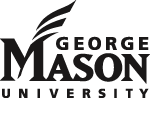 |
 |
On the HillPIA students get firsthand look at legislative processBy Lynn Burke One of the things about George Mason that appeals to prospective students is the university's proximity to the nation's capital. Mason's Department of Public and International Affairs (PIA) takes advantage of this location by taking students to the source of their classroom studies—Capitol Hill. Through its Summer High School Government Program and its graduate-level Public Policy Process course, PIA gives students a close-up and behind-the-scenes look at Congress with a seminar held in a House of Representatives or a Senate office building. “Learning is definitely enhanced by the seminars,” says Ann Ludwick, MPA '95, who coordinates the summer program. “Inside the classroom, students are exposed to a general timeline of American government concepts from the founding fathers and constitutional beginnings to the structures of the three branches on through civil liberties and civil rights and then to 'the action'—current events information on interest groups, campaigns, and elections; the media; and policy making. By participating in the Capitol Hill seminar, students can apply their book learning to real people who are involved in the legislative process.” Bernadette Costello, PIA's graduate coordinator and former Congressional Budget Office employee, says that the graduate-level course shows students that it is not all that glamorous to work on Capitol Hill. She does add that although the work is hard and demanding, it is very rewarding when the legislation one has been working on passes. Helping to make the experience possible and meaningful are Mason alumni and others involved in the many aspects of the legislative process. Seminar speakers have covered a range of topics, such as the media, communications, interest group lobbying, election reform, defense policy, and prescription drug and health care reform. At this past summer's seminar, Mason alumnus Allen Lomax, MPA '82, gave an overview of the U.S. Government Accountability Office (GAO), where he works as a senior analyst. Lomax gives three reasons for helping out: “First, I hope some of the students might be encouraged to join the public service when they graduate. Second, I am proud of the work [GAO] does for the Congress and the American people. Third, as a past president of George Mason's Alumni Association, this gives me another opportunity to give back to my university.” Another alumnus who has presented at past seminars is Rusty Payne, MPA '00. Payne, a public affairs specialist for the Drug Enforcement Administration and an adjunct professor in Mason's Communication Department, was the communications director for U.S. Representative Mary Bono (R–California) and spoke to past groups on communications and public relations. “While working in the House of Representatives for five years, I learned a great deal about the process in Congress,” Payne says. “There are many fascinating things that take place here that you can't read about in a textbook. I always try to give people an insight into what really goes on in Congress, especially at the staff level. The staff is what makes Congress go.” Vicki Watson, MPA '89, has also helped with past programs, speaking on interest groups and lobbying. She is legislative director for the National Community Development Association, a nonprofit organization comprising more than 550 local government agencies across the country that administer federal community development, economic development, and affordable housing funds. She says her motivation for participating in the program is the fact that she is helping young people understand the workings on Capitol Hill. She also hopes her presentation will motivate students to become excited about public policy and the limitless job opportunities available to them. |
|